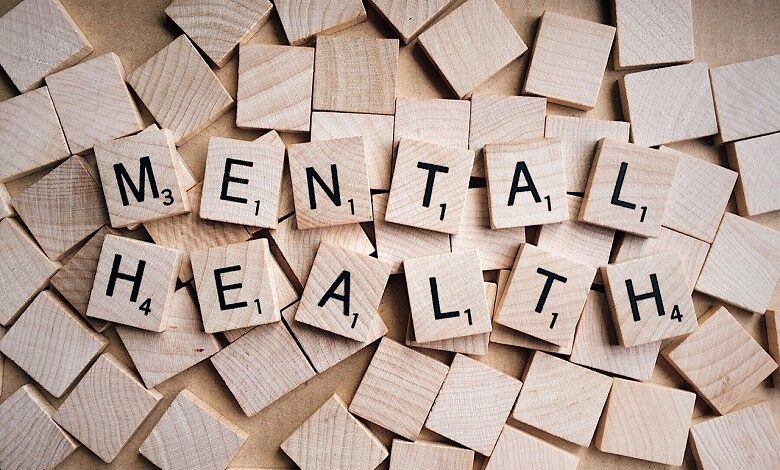Time to see a therapist: 10 signs your mental health is at risk

Taking good care of your mental health is essential in life. If you do some of these things, your mental state needs attention and care.
Sometimes we are too busy and overwhelmed by our daily activities, sometimes ignoring our mental health. We are not used to speaking about or addressing the symptoms of a deteriorating emotional and mental state until they seriously affect our lives.
According to the Mental Health Foundation, about 65 percent of people say they have psychological problems. This number is even higher for women, young people between 18 and 34, and single people (70 percent).
The situation aggravates by the fact that many are unaware of mental disorders such as depression and anxiety.
The following are signs to look out for to see if you are neglecting your mental health.
You do not like what you used to enjoy
If you’ve always enjoyed having coffee with friends after work or rushing to yoga classes, but recently it has ceased to seem attractive to you, this is a warning sign.
There is an official term for this condition, called anhedonia, which means the inability to enjoy activities that you would typically want.
If everyday things seem dull to you, do not bring you joy, and you experience more and more apathy, this may be one of the signs of depression, anxiety, or another disorder.
You cannot sleep, or you constantly feel sleepy
Mental health is closely related to sleep disorders. Therefore, if you are not getting enough sleep, sleeping too long can be one of the main signs that your mental health is not in order.
Often, when a person is experiencing severe stress, depression, or anxiety, he begins to suffer from insomnia, usually wakes up in the middle of the night, or cannot wake up in the morning. If you sleep a lot more or a lot less than you usually do, take note of this.
Having a mental disorder can disrupt sleep, but at the same time, poor sleep exacerbates the symptoms of mental illness. In any case, if your usual sleep pattern has failed, contact a specialist.
Appetite has changed
Some people become addicted to unhealthy habits such as excessive alcohol consumption or smoking when faced with severe stress or mental illness. Others start eating everything or, on the contrary, lose their appetite for everything.
While our appetite can fluctuate for various reasons, diet and physical activity changes are a reason to pay attention.
When we overeat, we try to avoid unpleasant feelings and reality with food. Simultaneously, lack of appetite can cause by increased levels of the stress hormone in the brain.
If you lose or gain weight dramatically, stop exercising all the time, or are never hungry, this could be one of the signs of depression and other mental disorders.
You are constantly in pain for no reason
Your body signals stress through a variety of pain sensations.
If you have frequent headaches, abdominal, back, neck, or muscle aches and cannot find the cause, this could warn that something is happening to your mental health.
The fact is that when something unusual or uncomfortable happens in the body, adrenaline begins to be produced, preparing us for the approaching danger. Blood pressure rises, and blood supply increases, which can cause tension and various spasms. Chronic body aches can also indicate mental health problems.
You never feel like working
Feelings of indifference, lack of motivation, and unwillingness to work can be signs of burnout or depression. Please note if you are increasingly taking time off from work, do not meet deadlines, are constantly overworked, and do not cope with your duties.
If you regularly experience stress at work or about work, do not be afraid to seek professional help, as this can seriously affect your mental health.
You avoid meeting friends and family
When a person experiences a mental disorder, they often feel disconnected from reality and find it difficult to maintain connections in their daily life.
This means that it is difficult for you to maintain a conversation, or it seems to you that you live in a kind of bubble that fences you off from the rest of the world.
Even in the presence of friends, you feel lonely; there is a feeling of awkwardness or irritability when communicating, you cancel meetings. All this suggests that something is wrong with your health.
You are afraid that you will not be understood or do not want to show yourself as you are. But connecting with other people can help you return to your previous state.
You become forgetful and find it difficult to concentrate
When we face mental health problems, even if we do not realize it, it is difficult for us to focus on something. If you become more forgetful, have problems with punctuality, you cannot concentrate on work or school, these can be symptoms of mental health problems. A 2016 study found that depression is often associated with both reduced working memory and slower processing speed.
You are attracted to risky behavior
Sometimes we take risky or impulsive actions that threaten our stability. We know this behavior is destructive, but we are still willing to drop caution, even though we know it will not bring us long-term joy.
Depression carries many dangers, and in an attempt to cope with negative emotions and pain, people often turn to alcohol, drugs, unsafe sex, and other dangerous habits and behaviors. The urge to engage in risky behavior, in the end, can lead to the destruction of family, career, and life.
You always feel tired
There is a widespread misperception that mental illness only occurs psychologically. However, people suffering from anxiety often experience physical symptoms such as excessive sweating, fatigue, nausea, tremors, and panic attacks. When we are depressed, we may have much less energy and feel weakened.
If your mental health is suffering, it may be difficult for you to carry out simple daily activities; you stop taking care of your hygiene and taking care of yourself.
You spend all the time on social networks
This symptom has appeared relatively recently in the digital age of the Internet. Any activity that dulls the senses, from flipping through social media to over-exercising, can indicate increased stress levels.
Also, people with mental illness often feel the need to share their feelings online, desperately wanting to reach as many others as possible because they think no one is listening.




